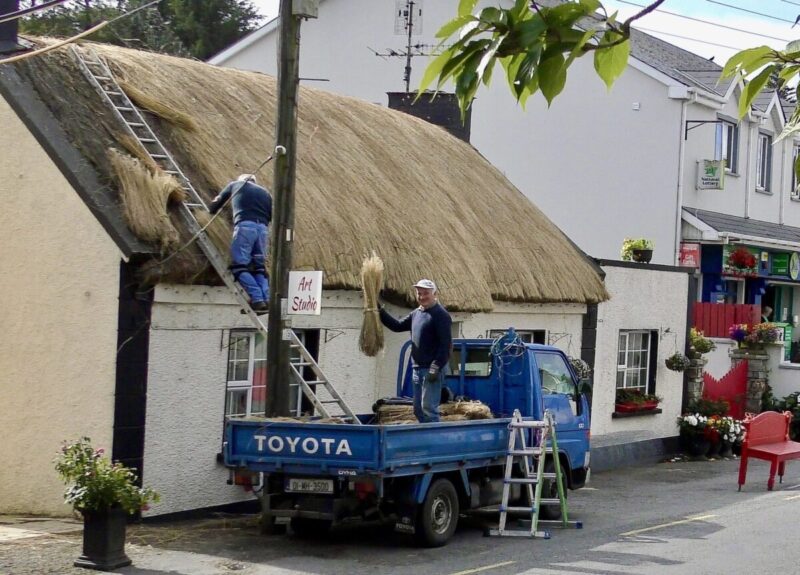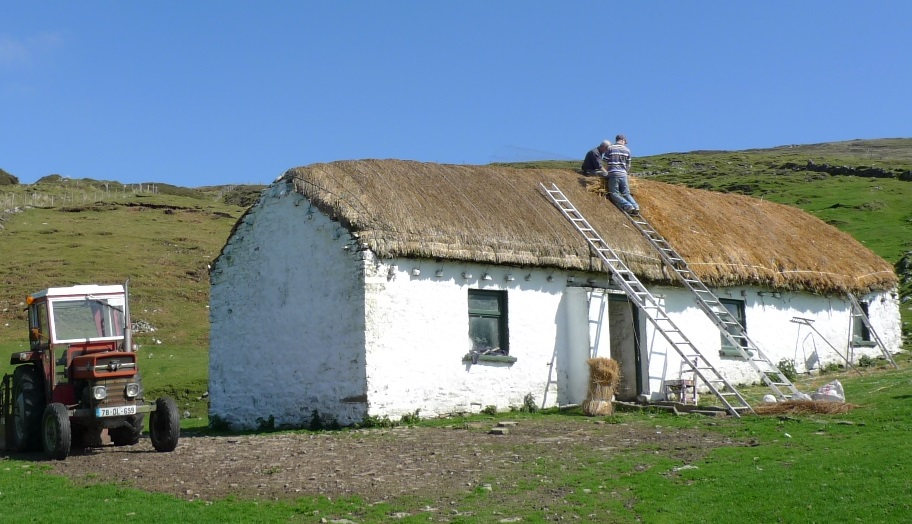The uniquely Irish craft of thatching is at serious risk of dying out unless greater investment is made into training people, a Donegal Fine Gael Senator has warned.
Senator Manus Boyle said that, as inter-generational training sharing of expertise is rarer, courses must now be provided through Educational Training Courses (ETBs). This, he said, was needed to ensure a pipeline of accredited craftspeople, including thatchers, is in place so specialist crafts survive.
Donegal is reputed to have the largest concentration of such houses in Ireland, with Inishowen having the highest number of traditional thatch cottages within the county.
“The thatched house has become symbolic of rural Ireland, but the traditional skill is at a critical point, with a huge shortage of thatchers to repair and look after these buildings. There is currently a one year waiting list for most repair jobs,” he said.
It’s estimated that there are just 15-20 trained thatchers in Ireland, and only two or three in Donegal, which Sen Boyle described as an alarming statistic when one considers there are approximately 2,000 thatched buildings that need constant maintenance.
“Recognising that thatching is a critically endangered skill, the Heritage Council established a course in thatching in conjunction with the Kilkenny Carlow ETB this year,” he added. The Donegal Thatching School has seen the demand for an ETB course through the high numbers applying for their weekend courses, so I am calling in the first instance for the provision of a thatching course to be provided in the Donegal ETB.”

Master thatcher Brian Lafferty (on roof) working on Kelly’s Cottage in Kerrykeel.
“However, Donegal is just one example of where there is a need for a service and no expertise. The current geographical spread of courses offered is scattered. With the spotlight firmly fixed on ensuring we’ve a strong construction labour force, accredited traditional skill courses should also be offered by ETBs and third-level institutions alongside mainstream construction courses. Traditional craftspeople support our construction sector and the viability of all buildings, both for housing and heritage.”
Sen Boyle said plans must also be put in place to ensure other traditional craftworkers, such as stone masons and blacksmiths also prevail.
“The Heritage Council offers the opportunity to upskill for craftspeople already working in the construction sector, and a new National Centre of Excellence for Traditional Skills aims to offer training to groups of apprentices while there are still instructors to teach them.”
Tags:








